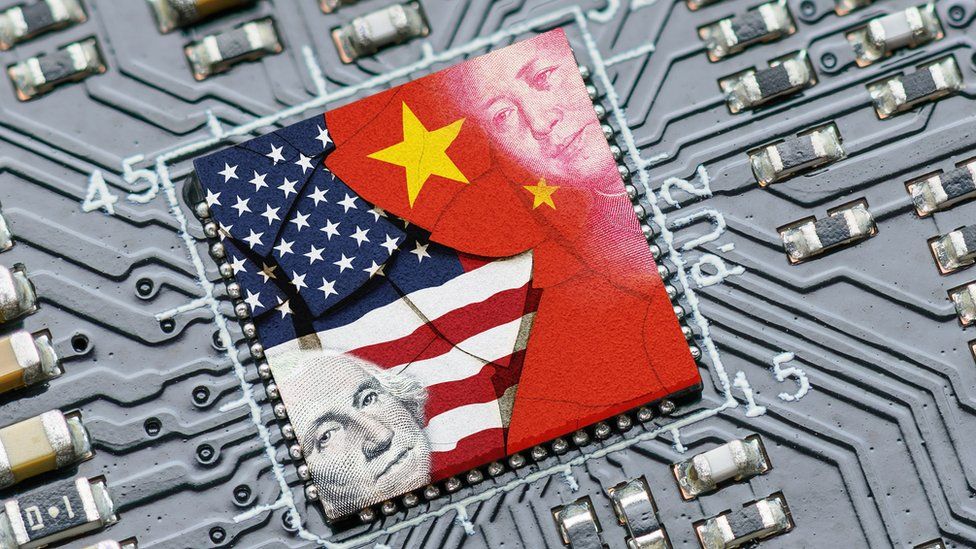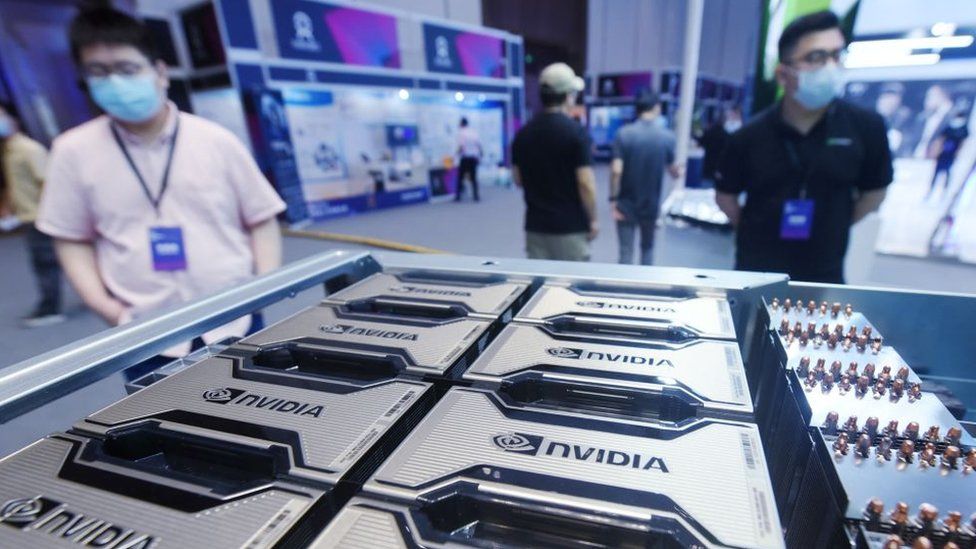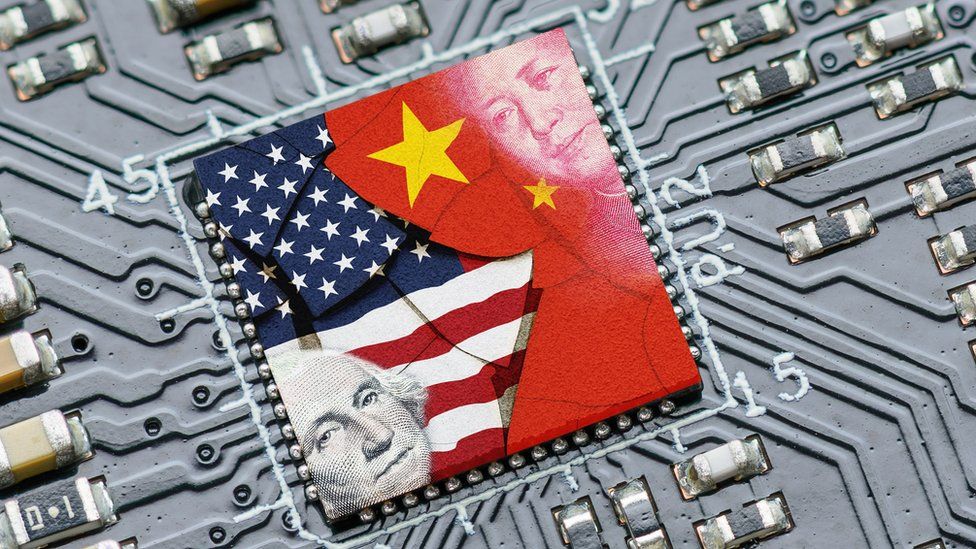US-China chip war: Washington announces new export curbs

The Biden administration has announced plans to cut off more exports of advanced chips to China.
They aim to close loopholes that became apparent after the US announced export restrictions on chips last October.
The curbs are designed to prevent China’s military from importing advanced semiconductors or equipment.
The move makes it tougher for companies like Nvidia, Advanced Micro Devices and Intel to sell existing or new chips to the world’s second largest economy.
The shares of all three companies fell on Wall Street after the announcement
Nvidia has said in a filing that the new export restrictions will block sales of two high-end artificial intelligence chips it created for the Chinese market, and that one of its gaming chips will also be blocked.
The Semiconductor Industry Association, which represents 99% of the US semiconductor industry by revenue, said in a statement that the new measures are “overly broad” and “risk harming the US semiconductor ecosystem without advancing national security as they encourage overseas customers to look elsewhere”.
A spokesperson for the Chinese embassy also said that it “firmly opposes” the new restrictions, Twhich also target Iran and Russia and go into effect in 30 days.
Two months ago, China started restricting exports of two materials, gallium and germanium, that are key to the semiconductor industry in retaliation.
China is by far the biggest player in the global supply chain of gallium and germanium. It produces 80% of the world’s gallium and 60% of germanium, according to the Critical Raw Materials Alliance (CRMA) industry body.
The materials are “minor metals”, meaning that they are not usually found on their own in nature, and are often the by-product of other processes.
Besides the US, both Japan and the Netherlands – which is home to key chip equipment maker ASML – have also imposed chip technology export restrictions on China.
The constant tit-for-tat between the world’s two biggest economies has raised concerns over the rise of so-called “resource nationalism” when governments hoard critical materials to exert influence over other countries.
Related Topics
- AMD
- Nvidia
- Intel
- Semiconductors
- China-US relations
-
US ramps up curbs on chip sales to China
-
7 October 2022

-
-
What China’s new move in chip war means for world
-
2 August

-
Published at Wed, 18 Oct 2023 01:20:05 +0000
